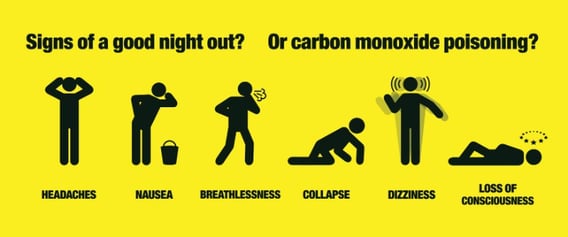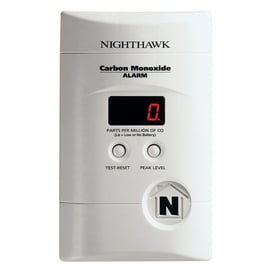Carbon Monoxide: What you need to know
by Jackson Bonetti, on Feb 16, 2018 5:47:00 PM
Carbon monoxide or CO is an odorless, colourless toxic gas that can be extremely harmful to your health. CO is produced whenever fuel is burned incompletely, including the burning of gases such
as propane and natural gas. CO, when inhaled, depletes the red blood cell count resulting in symptoms such as:

- Dizziness
- Nausea
- Drowsiness
- Impaired judgment
- Loss of coordination
If continued to be inhaled, CO poisoning can result in unconsciousness, brain damage and death.
Like many homes, yours most likely has some sort of natural gas using appliance. It is important to ensure that it is properly maintained by a licensed natural gas contractor and that your CO monitors are working properly. In addition to this, here are some tips laid out by Fortis BC about preventing the dangers of carbon monoxide:
- Always have a licensed gas contractor who is registered with Technical Safety BC, install, inspect and service your natural gas appliances and check vents regularly to make sure that they are not disconnected, blocked or corroded.
- Make sure your contractor uses a licensed gas fitter (ask to see the gas fitter license). Also ask if the gas fitter knows how to check heat exchangers—companies that only clean furnaces and ducting may not be qualified to do this kind of inspection.
- ALWAYS keep furnace fan compartment doors and/or the filter access panel in place.
- Check that outside air ducts are clear. Be sure to clean bug screens before every heating season.
- Open the damper of your wood-burning fireplace. If you have an open wood-burning fireplace, open the damper and partially open a window or door at or below the level of the fireplace when the fireplace is in use; close the damper after each fire, but only after the ashes are cool.
- Remove vehicles from the garage immediately after starting the engine.
- Be sure that all vent hoods and pipes from fuel-burning equipment are in place and secure.
- Ensure that an external vent is used for all gas appliances that are designed to be vented.
- Never operate a barbecue, camp stove or lantern in an enclosed space.
- Buy equipment that bears the seal of an approved certification agency such as the Canadian Gas Association or the Canadian Standards Association.

- Keep the area around your furnace clear for proper air circulation.
- Install a carbon monoxide alarm.
Be Safe Irwinners!
To Learn more about CO Poisoning and prevention: https://www.fortisbc.com/Safety/NaturalGasSafety/Pages/Carbon-monoxide.aspx
Images:
http://static.wixstatic.com/media/c4e0af_a93b415caf1b4ee59fce50733b7bf239~mv2.jpg
.png?width=162&height=64&name=IRWINS%20website%20logo%20(1).png)